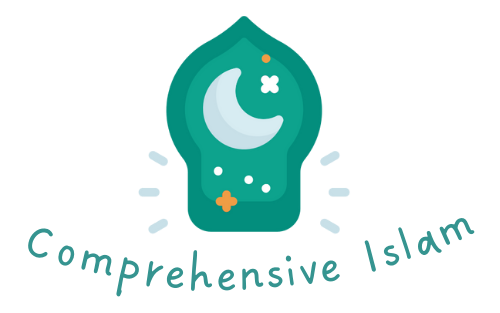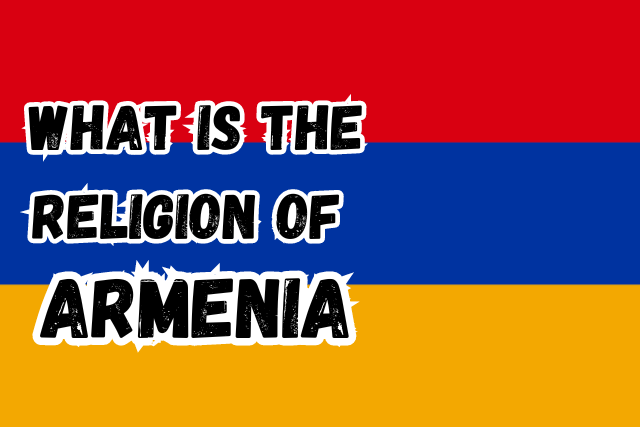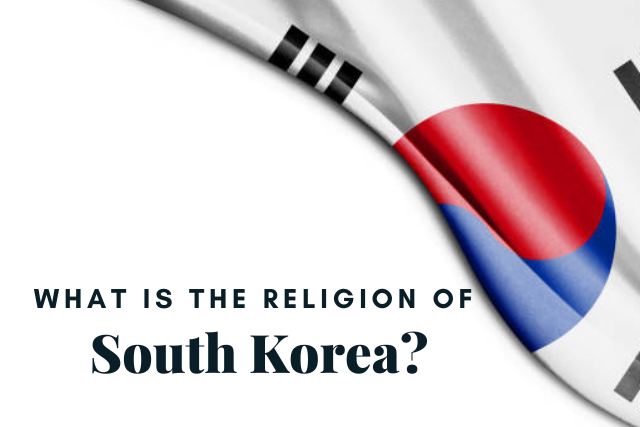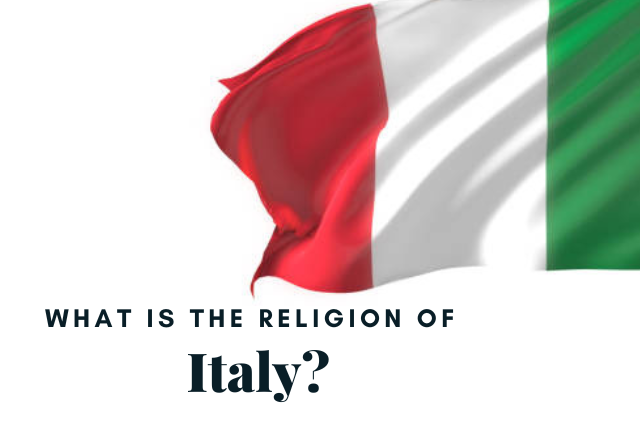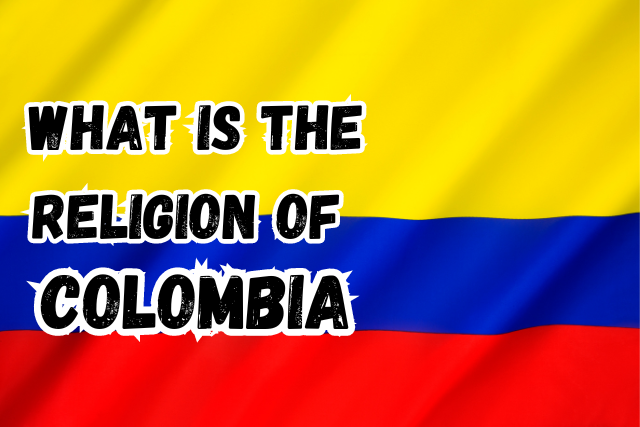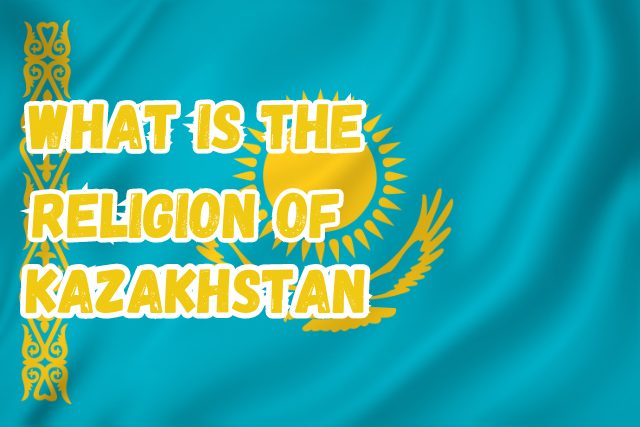What is the Religion of Connecticut
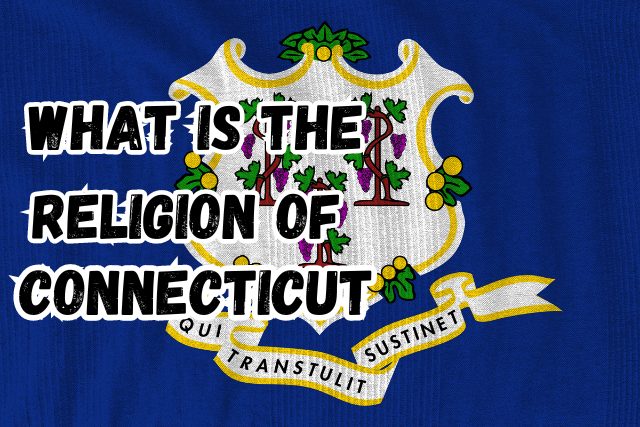
Welcome to the rich historical and religious tapestry of Connecticut. It’s a state in the northeastern part of the United States. I’ll delve into the diverse religious landscape that has shaped the spiritual identity of Connecticut.
From the early colonial era to contemporary expressions, the Constitution State’s diverse religious landscape mirrors its cultural evolution. Catholicism, Protestantism, Judaism, and various other faiths coexist in Connecticut’s spiritual mosaic. Explore the churches, synagogues, and mosques that stand as testaments to the rich religious diversity.
Ready to explore? Let’s dive into Connecticut’s unique religious identity.
What is the Religion of Connecticut | Main Religions
Christianity
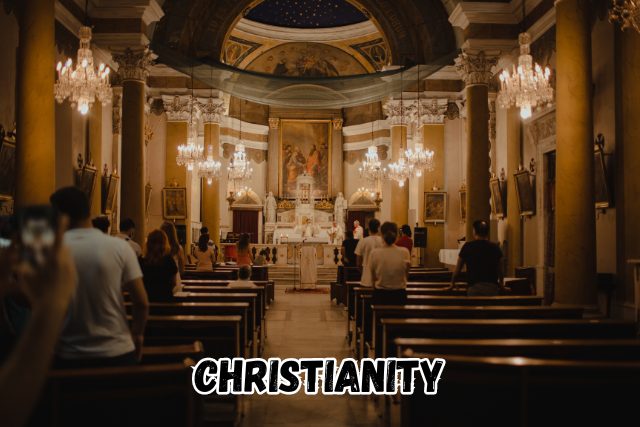
Christianity holds a prominent and enduring presence in Connecticut. It shapes the cultural and religious landscape of the state. Connecticut’s colonial history is deeply intertwined with the establishment of Christian congregations. Over the centuries, Christianity diversified within the state, encompassing various denominations and theological traditions.
Various Christian denominations have played a significant role in the development of communities and institutions. Here are these denominations:
Catholicism
The Catholic Church has a strong presence in Connecticut, with numerous parishes and institutions. The Archdiocese of Hartford, one of the oldest in the United States, oversees the Catholic community’s spiritual life and outreach efforts.
Protestantism
Various Protestant denominations, including Episcopalians, Methodists, Baptists, and Congregationalists, have established congregations across the state. These churches contribute to the religious vibrancy and community engagement in Connecticut.
Orthodox Christianity
Orthodox Christian communities, representing different Eastern Orthodox traditions, have found a home in Connecticut. Their religious practices and cultural expressions contribute to the diverse tapestry of the state.
Impact on Culture and Society
Christianity has left an indelible mark on Connecticut’s culture, influencing traditions, holidays, and societal norms. Churches serve not only as places of worship but also as centers for community activities, charitable initiatives, and cultural events.
Judaism
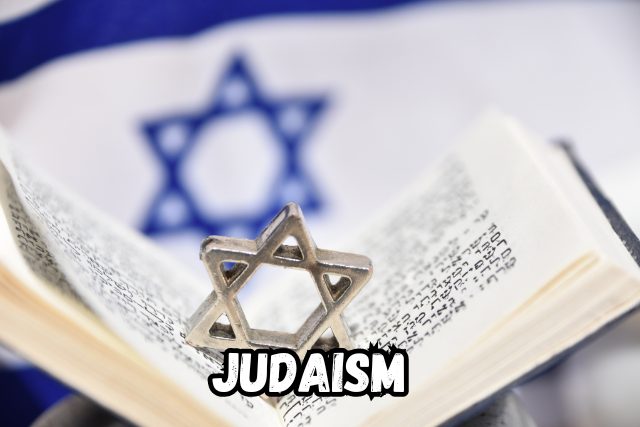
Judaism has a longstanding and meaningful presence in Connecticut, contributing to the state’s cultural and religious diversity. From historic synagogues to vibrant Jewish communities, Connecticut has been home to a rich tapestry of Jewish life.
The Jewish presence in Connecticut dates back to the colonial era, with the first Jewish settlers arriving in the 17th century. Over the centuries, Jewish communities grew, establishing synagogues, community centers, and educational institutions.
Synagogues and Jewish Institutions
Connecticut is home to a variety of synagogues representing different Jewish denominations, including Orthodox, Conservative, and Reform. These congregations serve as spiritual centers, fostering a sense of community, worship, and cultural expression.
Cultural Contributions
Jewish communities in Connecticut have made significant contributions to the state’s cultural landscape. From literature and arts to business and academia, individuals of Jewish heritage have played integral roles in shaping Connecticut’s identity.
Community Engagement
Jewish communities in Connecticut actively engage in community outreach, charitable initiatives, and social justice endeavors. The commitment to social responsibility and community welfare reflects the values embedded in Jewish tradition.
Islam

Islam has a growing and diverse presence in Connecticut. It contributes to the state’s cultural and religious mosaic. The Muslim community in Connecticut is characterized by its diversity, with followers of various Islamic traditions and backgrounds.
Community Growth
The Muslim community in Connecticut has experienced growth in recent years. With the establishment of mosques and Islamic centers across the state. These religious institutions serve as focal points for worship, community engagement, and educational activities.
Religious Diversity
Connecticut’s Muslim population is ethnically and culturally diverse, representing a variety of Islamic traditions, including Sunni and Shia. The community encompasses individuals from different countries, contributing to the richness of Islamic practices and cultural expressions.
Places of Worship
Mosques and Islamic centers in Connecticut provide spaces for congregational prayers, religious education, and community gatherings. These institutions play a crucial role in fostering a sense of unity among Muslims in the state.
Cultural Contributions
Members of the Muslim community in Connecticut actively contribute to the state’s cultural diversity. Through art, literature, and community events, Muslims in Connecticut share their cultural heritage and build connections with the broader community.
Religious Minorities
Hinduism
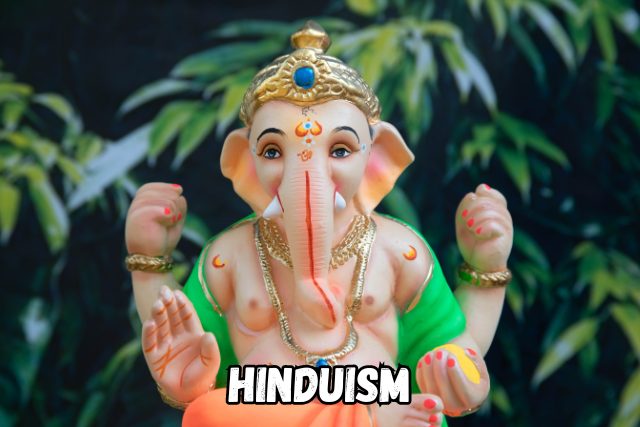
Hinduism has a notable presence in Connecticut, contributing to the state’s religious and cultural diversity. The Hindu community in Connecticut is characterized by its vibrant traditions, cultural events, and places of worship.
Community Life
Connecticut’s Hindu community is active in preserving and promoting Hindu traditions. Members of the community engage in religious practices, cultural celebrations, and social events that strengthen their sense of identity and community bonds.
Temples and Cultural Centers
Temples and cultural centers play a central role in the religious and cultural life of Connecticut’s Hindu community. These places of worship serve as hubs for religious ceremonies, festivals, and educational programs.
Festivals and Celebrations
Hindu festivals are celebrated with enthusiasm in Connecticut, bringing together the community and fostering a sense of unity. Events like Diwali, Holi, and Navaratri are marked by vibrant rituals, cultural performances, and communal feasts.
Buddhism

Buddhism has found a home in Connecticut, enriching the state’s religious diversity with its philosophy, practices, and cultural contributions. The Buddhist community in Connecticut is characterized by its commitment to spiritual growth, mindfulness, and community engagement.
Community Practices
Connecticut’s Buddhist community engages in various practices that reflect the core tenets of Buddhism. Meditation sessions, teachings, and communal gatherings contribute to the spiritual development of individuals within the community.
Temples and Meditation Centers
Temples and meditation centers serve as focal points for Connecticut’s Buddhist community. These places of worship provide serene environments for meditation, prayer, and community activities, fostering a sense of peace and mindfulness.
Cultural Celebrations
Buddhist festivals and cultural celebrations are observed in Connecticut, offering opportunities for the community to come together. Events such as Vesak, celebrating the Buddha’s birth, enlightenment, and death, are marked by rituals, teachings, and shared festivities.
Bottom Line
Connecticut’s religious landscape is a vibrant mosaic. Which reflects the diverse beliefs and practices of its residents. With interfaith coexistence and religious freedom, the state fosters an inclusive, tolerant society. In Connecticut, different religious communities contribute to the cultural tapestry of a region, resulting in richness.
FAQs
What is the most religious town in Connecticut?
The most religious town in Connecticut is subjective and can vary based on individual perspectives and criteria.
What is Connecticut’s religious tolerance?
Connecticut generally exhibits religious tolerance, promoting diversity and coexistence among different faiths.
How many Muslims are in CT?
The Muslim population in Connecticut is diverse, contributing to the state’s religious landscape.
Is there freedom of religion in Connecticut?
Connecticut upholds freedom of religion, allowing individuals to practice their faith without discrimination.
What percentage of people in Connecticut are Catholic?
The percentage of people in Connecticut who identify as Catholic varies but constitutes a significant religious demographic in the state.
